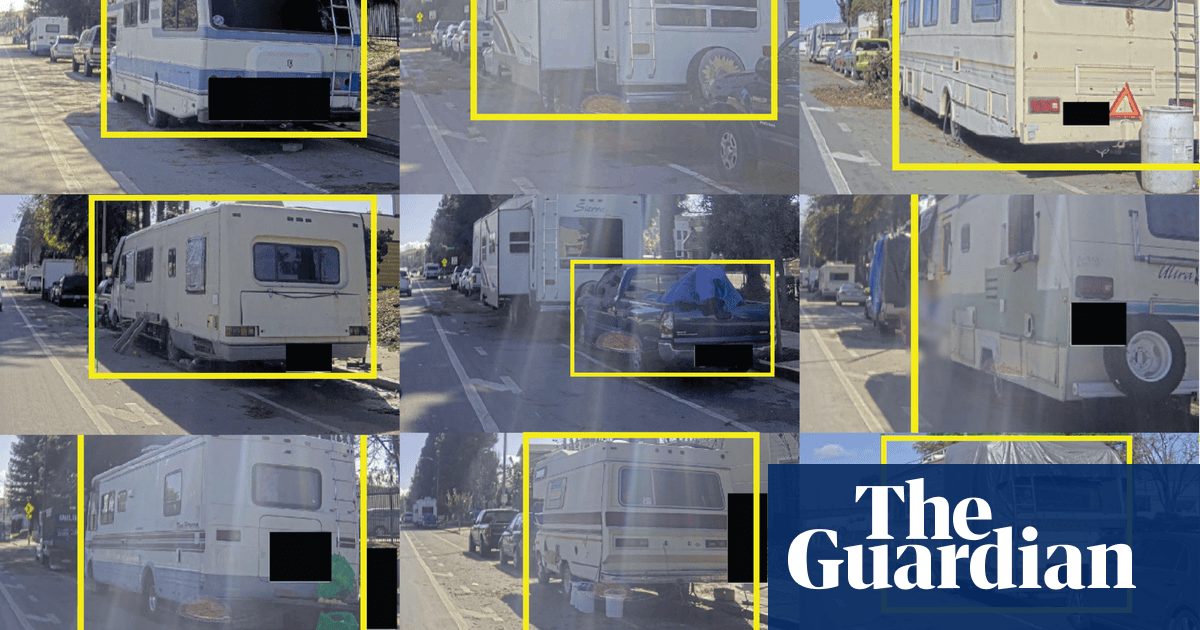Last July, San Jose issued an open invitation to technology companies to mount cameras on a municipal vehicle that began periodically driving through the city’s district 10 in December, collecting footage of the streets and public spaces. The images are fed into computer vision software and used to train the companies’ algorithms to detect the unwanted objects, according to interviews and documents the Guardian obtained through public records requests.



San Jose’s homeless is a very mixed bag. some wanting to be perpetually homeless, some actual recently loss home and is savable, some on the streets due to drugs (friend had a story where homeless asked for a burger, but refused one from a burger joint nearest by (implied wanted money for drugs)).
Weeding out whose helpable isnt an easy task, because not all homeless share the same reason on how they got to that lifestyle.
This is part of the problem with using terms like “homeless” to describe the occupants of an illegal campsite. There are numerous reasons one may choose to camp in a public space.
All members of society should have access to shelter (or a safe campsite, if that is our preference) and our basic needs met. As members of society, we shall follow laws which describe, for very good reasons, why we cannot simply erect a camping tent in a city park.
The problem with ignoring campsites is plummeting hygiene and safety. Waste is generated by day to day life and must be collected or eliminated. As campers accumulate and abandon the implements of a semi-permanent hovel: furniture, bedding, tarps, etc., the surrounding area transforms into a dumping site.
The technology described in the article already identifies potholes and illegal parking. It does not identify people or their race. Surely it could evolve into something with more potential for abuse, but in its current capacity, it is quite a neutral tool.
We have collected a lot of data on the “ignore and do nothing” solution – the outcome is a scientific certainty. Using tools like this to measure progress (for better or worse) seems like something that would help generate support for other solutions, such as extensive expansion of low-cost/no-cost housing services.